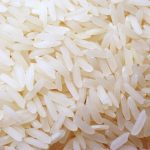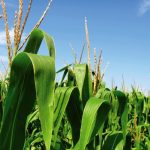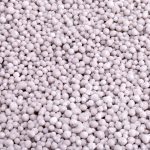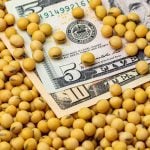
Opinion

Opinion: The increasing danger of forced farming
Autocratic regimes seem hell-bent on returning to the scary past
A troubling trend is creeping up on global farmers as governments control food production and eliminate crop diversity. In China, “non-grain” farming has become the target of the Rural Comprehensive Administrative Law Enforcement Brigade, or nongguan, which exercises agricultural administrative penalties and related inspections for the Agriculture and Rural Development ministries. Rules include no burying

Opinion: World’s most critical food faces uncertainty
The unsteady future of rice is a ‘singing canary’ for farms in general
Over 50 percent of the food calories eaten per day across the world comes from grains. In impoverished nations, that percentage is 60 per cent. In the poorest, it tops 80 per cent. The three most important grains are corn, wheat and rice. All are critical to global food security, but all are not equal.

Comment: GMO and GE could be powerful solutions, if we let them be
Breaking down the details on gene editing and GMOs and the issues surrounding them
Advances in genetic engineering have given rise to an era of foods that promise to revolutionize how we eat. Critics argue these foods could pose risks to human health and the environment. Proponents point to their potential for enhancing yields, reducing food waste and even combating climate change. Although GMOs and gene-edited foods have been

Opinion: The dodged bullets of 2022
Ag policy needs to be prepared if last year’s lifelines don’t reappear
Canadian grain and oilseed producers experienced a surge in major crop input expenses in 2022. At the same time, the market for grains and oilseeds was exceptionally volatile. This dynamic was critical in determining farm incomes in 2022 and has much to say on what farmers need from agricultural policy. To investigate this issue, the

Opinion: U.S. meat labelling changes could disrupt live animal trade
American lawmakers propose a voluntary standard, but it’s still a risk for Canada
As the late Yogi Berra once said, it’s “déjà vu all over again” as Canadian livestock producers nervously monitor new developments south of the border that threaten to unravel the tightly knit North American meat trade. The USDA Food Safety and Inspection Service is seeking comment until May 12 on a plan to tighten its

Opinion: Net zero could be change catalyst
As keynote presentations go, the kick-off speaker’s at a conference on the sustainability of Canadian agriculture hosted March 7 by the University of Manitoba was a bit of a downer — at least initially. Henry Janzen, a career Agriculture and Agri-Food Canada scientist with who now serves as an honorary research associate with the department’s
Opinion: Good or bad?
Whether or not invasive species threaten native biodiversity and ecosystems has been a point of debate among researchers for years. Invasive species have caused extinctions of native species and even altered the functioning of ecosystems. But not all species that are introduced to new areas become invasive — meaning they cause negative impacts. Despite this,

Opinion: Grain quality and the producer interest
The CGC’s historical role has slipped, and that’s a problem
The Canada Grain Act has a dual mandate: to regulate and safeguard the handling and quality of Canadian grain, and to do so in the interests of grain producers. Most farmers are aware of the Act’s provisions that defend their interests at primary elevators – independent arbitration of disputes and producer payment protection, for example

Opinion: U.S. comes closer to losing corn export crown
Brazil is closer than ever to being the undisputed king of corn sales
Reuters – U.S. corn exports usually begin increasing in January as soybean shipments ease, but that upward trend has yet to emerge due to poor overseas sales. China is the missing ingredient for U.S. exporters. Robust bookings from the Asian country inflated U.S. corn exports in the prior two years despite high prices, which are

Opinion: Ottawa tone deaf to issues facing farmers
This is what happens when a government is driven by urban politics
Ottawa recently announced that tariff revenues received from Canadian farmers who bought Russian/Belarusian fertilizers this year are being sent to Ukraine to rebuild infrastructure. Canada was the only G7 country to put tariffs on Russian and/or Belarusian fertilizer after Russia invaded Ukraine. Of the $115 million sent to Ukraine, $34 million were collected from Canadian


